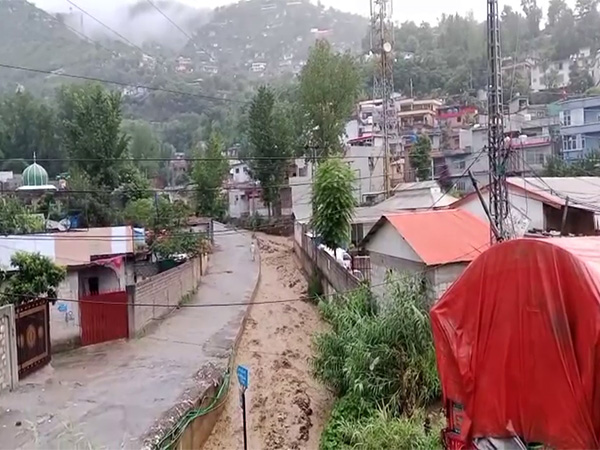Muzaffarabad Flood Crisis: A Wake-Up Call for Civic Accountability
In Muzaffarabad's Bandi Mir Samdani, severe waterlogging from monsoon rains submerges roads, disrupting daily life and livelihoods. Local authorities have failed to address the crisis, highlighting a lack of infrastructure and political accountability in Pakistan-occupied Jammu and Kashmir. Residents demand immediate government action.

- Country:
- PoJK
Amid relentless monsoon rains, the residents of Bandi Mir Samdani in Muzaffarabad, located in Pakistan-occupied Jammu and Kashmir (PoJK), are contending with acute waterlogging that has immobilized daily routines. Stagnant floodwaters have submerged the main road, inundating shops and homes, and imposing widespread distress among locals, whose livelihoods and basic activities have been severely disrupted.
Local authorities have yet to implement any significant measures to mitigate the crisis, leaving a resident to voice frustration over the absence of elected representatives. Despite the gravity of conditions, officials appear oblivious, with accusations of neglect towards five feet of stagnant water reported inside some homes. This negligence points to a larger administrative failure in PoJK to deliver essential civic services, exacerbated by ineffective governance and absent political accountability.
The flooding calamity in Muzaffarabad mirrors a recurring pattern of oversight in Pakistan-occupied areas like PoJK, where development is largely absent. Despite the region's rich natural resources, infrastructural inadequacies, insufficient healthcare, inadequate educational opportunities, and minimal government investment prevail. Islamabad's emphasis on strategic objectives rather than community welfare exacerbates the lack of basic civic amenities, further alienating local populations confronting recurrent humanitarian emergencies.
(With inputs from agencies.)
ALSO READ
Punjab Flood Crisis: Monsoon Rains Trigger Emergency
Hyderabad Deluge: City Grapples with Heavy Rainfall and Waterlogging
Delhi Drenched: Heavy Rains Trigger Waterlogging and Traffic Chaos
Youth Protesters Make Waves Against Salt Lake Waterlogging
Delhi Politics Heat Up Over Waterlogging and Healthcare










